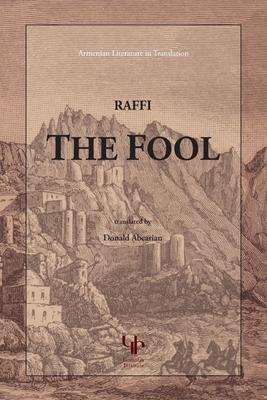Set in the Russo-Turkish War of 1877-78, "The Fool" opens on a rocky mountain slope where two imperial armies clash in the dark of night for control of a strategic fortress, and the reader is plunged into the heat of battle.
But soon the focus shifts to earlier more tranquil days, when Armenian villages tucked away in little valleys went about their age-old routine, prospering warily beneath the snow-capped summits of Armenia. It is in this setting that Raffi summons his mastery of ethnographic detail to open the doors on every theme relevant to the lives of their inhabitants and we hear their impassioned discussions trailing off into the summer night.
Arguably the single most important work of fiction dealing with the Armenian Question, "The Fool" is an account of the protracted struggle to replace Ottoman tyranny with a just secular order and the rule of law. It is an account of the heroism involved in protecting the lives and elemental human rights of ordinary Armenians from the avarice of Ottoman officials, the depredations of neighboring peoples, and the cool indifference of a corrupt Armenian elite.
The elevated diction of the narrative, the Armenian aphorisms that enliven the dialogue, the presence of actual historical figures in the plot all make "The Fool" an encounter with one of the most creative minds in modern Armenian history.
The author, Raffi (Hagob Melik Hagobian), is considered the foremost Armenian novelist of the 19th century. His works still remain in print today.
